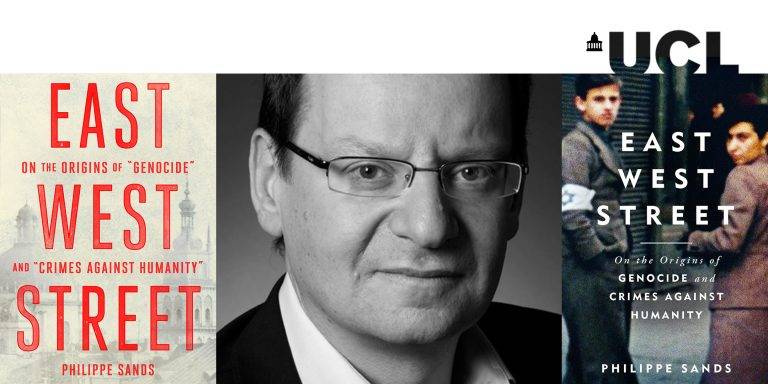‘On Law, Life and Literature’ Professor Philippe Sands QC speaks about his new book
19 October 2016
On 18 October, Professor Philippe Sands QC spoke with Professor Dame Hazel Genn about his new book East West Street in a private event for the UCL Laws Community at Wilkins Gustave Tuck Lecture Theatre.
Professor Dame Hazel Genn’s introduction was followed by a Q&A session from the public.
Professor Philippe Sands QC said:
‘I was delighted to open the new academic year with an event on home ground at UCL, in conversation with Dean Genn, with so many students, staff and faculty present. UCL and the Faculty of Law have provided amazing support over the six years of writing East West Street, for which I am hugely grateful.’

Samantha Williams, PhD student, attended the event and shared a few thoughts:
‘One of the highlights of the event was the fact that the familial elements and personal context interwoven both through the book and the discussion. I thought this was fascinating because it’s very rare that a legal academic can be so personal in his writing and when speaking in public.
My classmates and I were thrilled to hear Professor Sands talking about the many, innumerable coincidences that he discovered when researching and indeed writing the book. He highlighted the fact that the book was in essence a tale of “three men, two legal norms and one city,” but that this “unorthodox academic project” was “bookended with his own grandfather’s story and remarkable coincidences.”
Professor Sands said that this idea of family is at the heart of the book and key to the central themes and analysis of the two norms of genocide and crimes against humanity in which the underlying questions are always: “who am I? Am I an individual, am I a group? Why does this matter?”
One of the questions that most resonated with me and, I believe with Professor Sands, was how he thought his grandfather might receive the book if he was still alive. Sands replied that he hoped positively, as his mother had done so.’
 Close
Close

